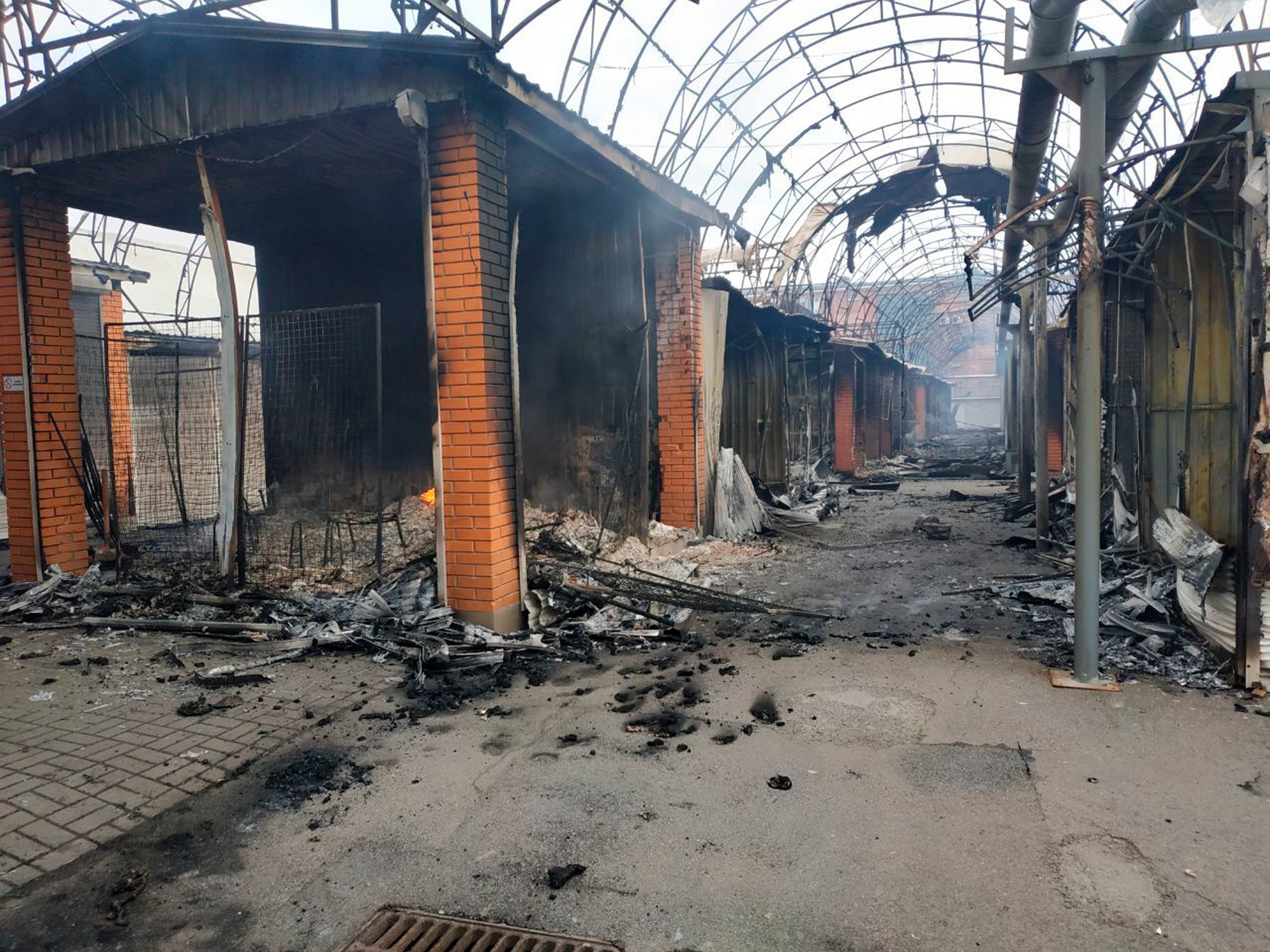MoD: Russian forces continue to shell Chernihiv despite pledge to scale back
The head of GCHQ said Vladimir Putin’s advisers are afraid to tell him the truth about the state of the conflict.

Your support helps us to tell the story
From reproductive rights to climate change to Big Tech, The Independent is on the ground when the story is developing. Whether it's investigating the financials of Elon Musk's pro-Trump PAC or producing our latest documentary, 'The A Word', which shines a light on the American women fighting for reproductive rights, we know how important it is to parse out the facts from the messaging.
At such a critical moment in US history, we need reporters on the ground. Your donation allows us to keep sending journalists to speak to both sides of the story.
The Independent is trusted by Americans across the entire political spectrum. And unlike many other quality news outlets, we choose not to lock Americans out of our reporting and analysis with paywalls. We believe quality journalism should be available to everyone, paid for by those who can afford it.
Your support makes all the difference.Russian forces have continued shelling the strategically important Ukrainian city of Chernihiv despite promises to scale back operations.
UK defence intelligence analysts also believe only a “limited number” of units have withdrawn from around Kyiv following Russia’s announcement at talks in Istanbul on Tuesday that it would reduce military activity near the capital and Chernihiv.
Meanwhile, a former commander of UK land forces suggested Nato has been “defeated” because Vladimir Putin called the alliance’s bluff by invading Ukraine, and that in future a smaller coalition of nations will be needed to respond militarily to Moscow.
General Sir Nick Parker, who has also acted as an adviser to Ukraine’s defence ministry, said Nato had adopted a defensive position by putting a protective ring around its members but not being prepared to develop an “offensive counter-strategy to Putin”.
“Slightly controversially I suppose, I mean Nato’s been defeated, Nato’s bluff was called,” he told BBC Radio 4’s Today programme.
“We were unable to stop the Russians trampling all over Ukraine and now Nato is holding the line of the 2004 expansion, along the line of the Baltic states and Poland and Hungary and Romania.”
He said the alliance does not have the capacity “to move on to the offensive with its 30 nations all with slightly different views” and so “we need to have a smaller coalition of nations who can start to develop an offensive counter-strategy to Putin”.
The Ministry of Defence’s latest intelligence assessment said “significant Russian shelling and missile strikes” have continued around Chernihiv, which lies between Kyiv and Belarus.
Around Kyiv, Russian forces continue to hold positions to the east and west “despite the withdrawal of a limited number of units”, meaning “heavy fighting will likely take place in the suburbs of the city in coming days”.
In Mariupol, the southern port which has been a key target for Moscow’s forces, “heavy fighting continues”, however the centre of the city remains under Ukrainian control.
Ukrainian President Volodymyr Zelensky said the war is at a “turning point” and stressed he does not trust Russian assurances, instead promising to prepare for Moscow to focus its forces on the eastern Donbas region.
The failure of Russian forces to complete the kind of lightning advances envisaged by commanders has led to Western intelligence agencies concluding that Mr Putin is not being given the full picture by his frightened commanders.
The head of the GCHQ intelligence agency, Sir Jeremy Fleming, used a rare public speech to say it is clear that Mr Putin “misjudged the resistance of the Ukrainian people”.
“He under-estimated the strength of the coalition his actions would galvanise. He underplayed the economic consequences of the sanctions regime. He over-estimated the abilities of his military to secure a rapid victory,” Sir Jeremy said in a speech in Australia.
“We’ve seen Russian soldiers – short of weapons and morale – refusing to carry out orders, sabotaging their own equipment, and even accidentally shooting down their own aircraft.
“And even though we believe Putin’s advisers are afraid to tell him the truth, what’s going on and the extent of these misjudgments must be crystal clear to the regime.”
His comments were echoed in the White House, where US President Joe Biden’s director of communications, Kate Bedingfield, said: “We believe that Putin is being misinformed by his advisers about how badly the Russian military is performing and how the Russian economy is being crippled by sanctions because his senior advisers are too afraid to tell him the truth.”